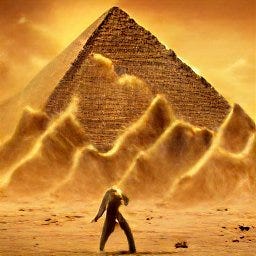Mortal Kombat: Armageddon is epic. It does not hesitate to prove this fact. In the opening scene, as a vulture eats away at the corpse of some forgotten warrior, the narrator describes the impending apocalypse, detailing the “critical point” of the strength of the world’s fighters before those fighters appear and roar at their enemies. Two armies of powerful warriors from the franchise’s previous games smash into each other in a frenzy of violence, showing fan-favorite characters impale, crush, bludgeon, and shoot each other. Then, the pyramid erupts from the ground. As the narrator continues describing the world’s approaching end, the heroes and villains of the series climb and battle their way to the top of the pyramid. As Shang Tsung reaches the top of the pyramid, he is grabbed by the chains of his zombie nemesis, withering away as his life force drains and the camera pans towards the growing flame at the top of the structure. As the narrator announces that “Armageddon has begun,”…
Substack is the home for great culture



